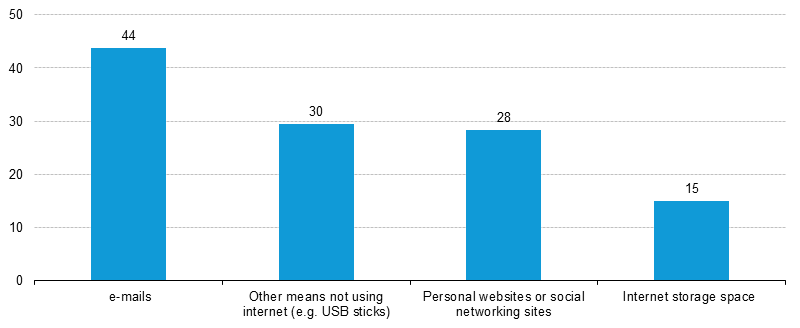Tag: Internet
the very first Web site
China Trolls
Leaked Documents Show How China’s Army of Paid Internet Trolls Helped Censor the Coronavirus from r/worldnews
At a time when digital media is deepening social divides in Western democracies, China is manipulating online discourse to enforce the Communist Party’s consensus. To stage-manage what appeared on the Chinese internet early this year, the authorities issued strict commands on the content and tone of news coverage, directed paid trolls to inundate social media with party-line blather and deployed security forces to muzzle unsanctioned voices.
+++++++++++++++++
more on trolls in this IMS blog
https://blog.stcloudstate.edu/ims?s=trolls
faith in expertise
Hofstadter argued that this overwhelming complexity produced feelings of helplessness and anger among a citizenry that knew itself to be increasingly at the mercy of more sophisticated elites. “
Credentialism can run amok, and guilds can use it cynically to generate revenue or protect their fiefdoms with unnecessary barriers to entry. But it can also reflect actual learning and professional competence, helping separate real experts from amateurs or charlatans.
Experts are often wrong, and the good ones among them are the first to admit it…. Yet these days, members of the public search for expert errors and revel in finding them—<b>not to improve understanding but rather to give themselves license to disregard all expert advice they don’t like.<b>
#DunningKrugerEffect #metacognition #democracy #science #academy #fakenews #conspiracytheories #politics #idiocracy #InformationTechnology #Internet
WWW 30 years old
Google China
Alphabet’s Plans for a China Comeback Go Beyond Google Search
for Google’s corporate parent, Alphabet, the opportunities in the world’s largest internet market may be too good to resist. And the full scope of the company’s interest in China now appears to be broader than just internet search.
The latest hint came from Waymo, the driverless-car company that was spun out of Google in 2016. Chinese media noticed this week that the business had quietly registered a Shanghai subsidiary in May, suggesting that it wants a piece of an industry that the Chinese government has made a priority.
Unlike Google, Apple runs its own app store in China, heeding government directives about the kinds of apps that can be available to Chinese users. Microsoft and Amazon offer cloud computing services, working with local partners and following strict controls on how customers’ data is stored.
Baidu, maker of the country’s leading search engine, has made its autonomous-vehicle software platform available to dozens of local and foreign companies. SAIC Motor, China’s largest carmaker, is working with the e-commerce titan Alibaba. BMW and Daimler have received permission in China to test their own self-driving vehicles.
++++++++++
more on Google and China in this IMS blog
https://blog.stcloudstate.edu/ims?s=google+china
classroom discussions on privacy
Dear colleagues,
the topics of privacy pertaining technology is becoming ubiquitous.
If you feel that the content of your class material can benefit of such discussions, please let us know.
Please have some titles, which can help you brainstorm topics for discussions in your classes:
Power, Privacy, and the Internet
https://blog.stcloudstate.edu/ims/2015/12/03/power-privacy-internet/
Privacy groups slam Department of Homeland Security social media proposal
https://blog.stcloudstate.edu/ims/2016/08/24/dhs-social-media-proposal/
FBI quietly changes its privacy rules for accessing NSA data on Americans
https://blog.stcloudstate.edu/ims/2016/03/09/surveillance-and-privacy/
Facebook canceled a student’s internship after he highlighted a massive privacy issue
https://blog.stcloudstate.edu/ims/2015/08/17/facebook-and-privacy/
If you seek more tangible, hands-on assistance with similar and/or any topics regarding technology, please do not hesitate to contact us.
individual use of Internet and cloud services
Internet and cloud services – statistics on the use by individuals. Half of Europeans used the internet on the go and a fifth saved files on internet storage space in 2014
Use of internet and other means for sharing files electronically, EU-28, 2014 (% of individuals)4

Deep learning and Wearables
RE.WORK Deep Learning Summit, Boston
Internet of Things Summit, Boston 2015
May 28, 2015 – May 29, 2015
Hyatt Regency Boston, Boston, Massachusetts, USA
– See more at: https://www.crunchbase.com/event/internet-of-things-summit-boston-2015-2015528#sthash.cBVjBogG.dpuf